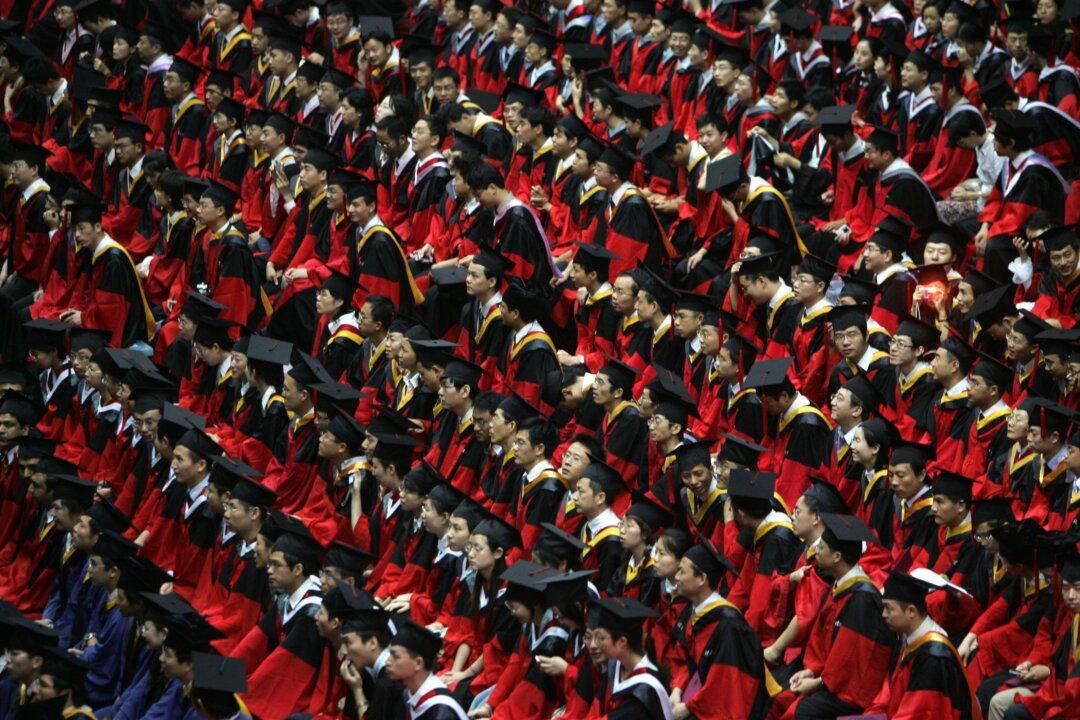Chinese candidates applying for a Canadian taxpayer-funded exchange program must declare allegiance to the Chinese Communist Party (CCP) leadership and the Party’s “socialist system,” The Epoch Times has learned.
Support for Chinese Regime Required to Access Canadian-Funded Scholar Exchange Program in Canada

Students during a graduation ceremony held at Tsinghua University in Beijing, China, on July 18, 2007. China Photos/Getty Images




